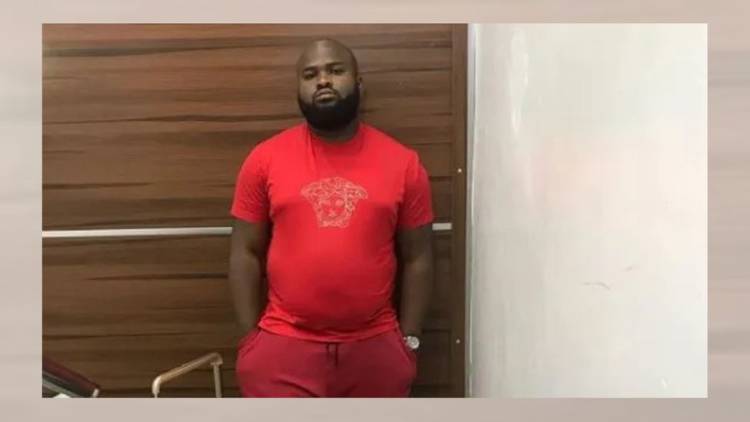Ehonre Oluwaseun, popularly known as Classic Baggie, is in trouble over his indicted by a U.S. District Court in Delaware for cyber fraud.
PREMIUM TIMES reports that although the indictment occurred last year, it received little public attention, unlike the sentencing of his alleged co-conspirator, Olugbenga Lawal, who is currently serving a 10-year, one-month prison term for laundering proceeds from internet fraud schemes. Mr. Lawal has also been ordered to pay $1.46 million in restitution to victims.
The fraudulent schemes were coordinated by an international cybercrime syndicate called the Miami Crew, led by Classic Baggie, who was based in Lagos and widely celebrated in Nigeria as a philanthropist at the time.
The newspaper said despite Mr. Lawal’s high-profile conviction, Ehonre Oluwaseun role in the case remained largely under the radar until it obtained court documents confirming his central involvement in the scams.
Multi-Million Dollar Cyber Scheme
From 2019 to 2020, the Miami Crew was accused of stealing and laundering millions of dollars through Business Email Compromise (BEC) and romance scams.
According to the documents, the crew — under Classic Baggie’s leadership — used spoofed or hacked email accounts to impersonate company executives and deceive employees into transferring funds or sensitive data.
“The Miami Crew would send Lawal illicit proceeds from these fraud schemes at the instruction of Classic Baggie, who referred to Mr. Lawal as his partner in the romance fraud thing,” the court document states.
Fraud victims sometimes transferred money directly to Lawal, who was described as a “money mule.” He then helped repatriate the funds to Nigeria via currency exchanges or by purchasing and shipping vehicles.
Other named crew members include Rita Assane and Dwight Baines, both U.S. citizens in Florida, and Michael Hermann, an Ivory Coast national also based in Florida. Each used shell companies — KLAM Entertainment LLC, Baines Properties LLC, and Topslope Ventures LLC, respectively — to launder illicit proceeds.
Among the identified victims, “Company A” reportedly lost $459,264, and “Company B” lost $100,879 in 2020 alone. The group allegedly tricked customers into making payments to fake accounts, citing changes in payment policies due to COVID-19.
In Nigeria, Classic Baggie maintained the image of a thriving young entrepreneur with interests in real estate, car dealerships, and entertainment — all under the umbrella of his Baggie Groups conglomerate.
Numerous media reports described him as a generous philanthropist known for giving back to society.
He was also known to associate with Ramon Abbas (Hushpuppi), another convicted Nigerian fraudster sentenced in the U.S. to 11 years for similar crimes.
Following the indictment, Classic Baggie has virtually disappeared from public view.
His Instagram handle, @classicbaggie, is inactive, and his once-associated account, Baggieexchangegroup, now shares random content on luxury homes and vehicles, boasting over 38,000 followers.
The court document states: “Members of Classic Baggie’s criminal network are charged in the Indictment with laundering proceeds of Internet fraud schemes, to include Business Email Compromise (BEC) and Romance fraud Scheme.”
Prosecution Challenges
Though indicted, Classic Baggie has not been arrested or prosecuted — likely because he resides in Lagos, beyond the immediate jurisdiction of U.S. authorities.
Cross-border fraud cases often involve complex legal and diplomatic hurdles. While indictments can be issued in absentia, actual prosecution requires the physical presence of the accused in court, as mandated by the Sixth Amendment of the U.S. Constitution, which guarantees the right to confront one’s accusers.
When contacted by PREMIUM TIMES, the U.S. Attorney’s Office for the District of Delaware said it had “no details to share” at this time regarding Mr. Oluwaseun’s case.
The U.S. has previously pursued extraditions for cyber fraud suspects. In December 2024, Abiola Kayode, a Nigerian arrested in Ghana, was extradited to Nebraska. Nigeria has an existing extradition treaty with the U.S., signed in 1931, and has handed over several suspects over the years.
In 2023, Samuel and Samson Ogoshi were extradited from Nigeria to face charges in Michigan for sexually extorting teenagers. In 2022, Fatade Olamilekan was extradited to face a $3.5 million fraud charge after appearing on the FBI’s wanted list.
However, extradition from Nigeria can be slow and politically sensitive. If not pursued, suspects like Classic Baggie may remain free locally, though they face international travel restrictions and potential legal consequences abroad.
Until then, Classic Baggie remains untried, his whereabouts uncertain, and justice — at least from the U.S. court system — still pending.


